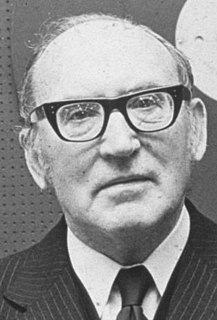A Quote by Paul Horn
I've approached music with the understanding that knowledge is available regarding tones and their effect upon the body. I think the father of that knowledge was the mathematician Pythagoras who lived several thousand years ago. Pythagoras was also a fine musician and he knew specifically what tones would affect which parts of the body.
Related Quotes
We know next to nothing with any certainty about Pythagoras, except that he was not really called Pythagoras. The name by which he is known to us was probably a nickname bestowed by his followers. According to one source, it meant ‘He who spoke truth like an oracle’. Rather than entrust his mathematical and philosophical ideas to paper, Pythagoras is said to have expounded them before large crowds. The world’s most famous mathematician was also its first rhetorician.
Aristotle ... imputed this symphony of the heavens ... this music of the spheres to Pythagorus. ... But Pythagoras alone of mortals is said to have heard this harmony ... If our hearts were as pure, as chaste, as snowy as Pythagoras' was, our ears would resound and be filled with that supremely lovely music of the wheeling stars.
A source of strength in the early days was that groups in various parts of the world were prepared to construct experimental computers without necessarily intending them to be the prototype for serial production. As a result, there became available a body of knowledge about what would work and what would not work.
Consonance, says the dictionary, is the combination of several tones into a harmonic unit. Dissonance results from the deranging of this harmony by the addition of tones foreign to it. One must admit that all this is not clear. Ever since it appeared in our vocabulary, the word 'dissonance' has carried with it a certain odor of sinfulness. Let us light our lantern: in textbook language, dissonance is an element of transition, a complex or interval of tones that is not complete in itself and that must be resolved to the ear's satisfaction into a perfect consonance.
When speaking of a "body of knowledge" or of "the results of research," e.g., we tacitly assign the same cognitive status to inherited knowledge and to independently acquired knowledge. To counteract this tendency a special effort is required to transform inherited knowledge into genuine knowledge by revitalizing its original discovery, and to discriminate between the genuine and the spurious elements of what claims to be inherited knowledge.
What seems certain is that Pythagoras developed the idea of mathematical logic. He realized that numbers exist independently of the tangible world and therefore their study was untainted by inaccuracies of perception. This meant he could discover truths which were independent of opinion of prejudice and which were more absolute than any previous knowledge.
The reason we can't attain the highest level of knowledge while incarnate is that we can't then wholly escape the influence of the body (and so of perception and of certain desires that take us away from thinking properly); and that prevents us from understanding fully what forms are, which one must do in order to have the highest level of knowledge.




































